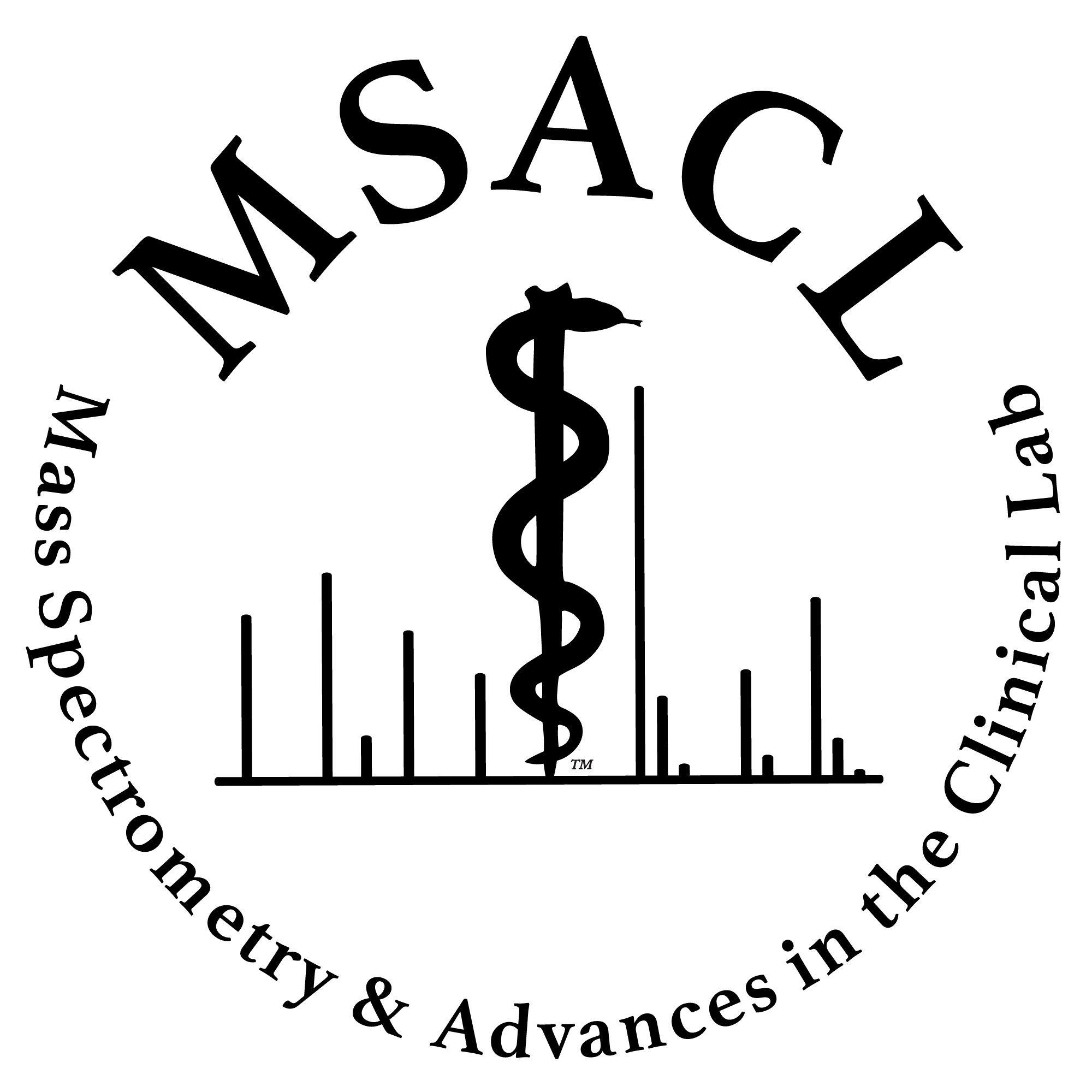MSACL 2024 Abstract
Self-Classified Topic Area(s): Proteomics > Precision Medicine > none
|
|
Poster Presentation
Poster #54b
Attended on Thursday at 12:15
|

|
 Transferability and Degree of Harmonization of an LC-MS Based Reference Measurement Procedure for Apolipoproteins in a Network of Calibration Laboratories Transferability and Degree of Harmonization of an LC-MS Based Reference Measurement Procedure for Apolipoproteins in a Network of Calibration Laboratories
L. Renee Ruhaak (1), Fred Romijn (1), Zsusanna Kuklenyik (2), Julia Dittrich (3), Eline Dantuma (1), Nina Diederiks (1), Liesbet Deprez (4) Andy Hoofnagle (5), Hubert Vesper (2), Uta Ceglarek (3,6), Christa M. Cobbaert (1), on behalf of the IFCC working group for standardization of apolipoproteins by mass spectrometry
(1) Department of Clinical Chemistry and Laboratory Medicine, Leiden University Medical Center, Albinusdreef 2, 2333 ZA Leiden, The Netherlands
(2) Division of Laboratory Sciences, Centers for Disease Control and Prevention, Atlanta, GA, USA.
(3) Institute of Laboratory Medicine, Clinical Chemistry and Molecular Diagnostics, University Hospital Leipzig, Germany
(4) European Commission, Joint Research Centre (JRC), Geel, Belgium
(5) Department of Laboratory Medicine and Pathology, University of Washington, Seattle, WA 98195-7110, USA
(6) LIFE-Leipzig Research Center for Civilization Diseases, University of Leipzig, Germany. Division Clinical Mass Spectrometry of the German Society of Clinical Chemistry and Laboratory Medicine (DGKL), Germany
|
Presenter Bio: Fred has more than 30 years of research experience in various research groups within the LUMC Leiden. Over the past 10 years, I have been closely involved in developing and validating a standardized apolipoprotein assay with the research group of Prof. Dr. C. Cobbaert. |
|
|
|
|
Abstract Introduction
For apolipoprotein standardization, a network of three calibration laboratories has been established for the value assignment of matrix-based reference and EQA materials. A multiplexed LC-MS based reference measurement procedure (RMP) has been developed for serum apolipoproteins apo(a), apoA-I, apoB, apoC-I, apoC-II, apoC-III and apoE. This study evaluates the transferability of the RMP among 3 calibration labs and assesses whether the current level of harmonization between the calibration labs fulfils predefined analytical performance specifications.
Methods
Six periodic ringtrial surveys were held among three calibration laboratories. The study protocol, calibrators, internal standards, quality controls (QC) and clinical samples (CS) were shared among the labs prior to the study. Precision and inter-peptide comparisons of the CS were used to evaluate intra-laboratory performance, while Inter-laboratory comparisons and the overall level of harmonization of the CS were defined to evaluate equivalence between the calibration labs. Precision of the common bilevel QC was assessed to monitor improvement in the level of harmonization over time.
Results
Intra-laboratory precision generally fulfilled predefined performance, which was defined as CVa < 50% of minimal Total allowable Error. Additional inter-laboratory variation was observed. Specifically, median interlab variation for the quantifying peptides was 13.5%, 4.7%, 4.4%, 9.9%, 8.5%, 6.6% and 6.8% for apo(a), apoA-I, apoB, apoC-I, apoC-II, apoC-III and apoE, respectively. Median interlaboratory biases were 4.45%, 3.15%, 1.3%, 8.4%, 4.65%, 3.45% and 2.55% for these same proteins, respectively. For apo(a) specifically, the average interlaboratory CV for four samples around the cut-off value of 90 nmol/L was 13.7%. In QC samples, the average imprecision for all apos decreased from 6.0% and 18.1% for IQC1 and IQC2, respectively, to 5.2% and 9.5% over the course of six months, indicating improvement of analytical performance of the network of calibration labs over time.
Conclusions
This study shows the feasibility of transferring an LC-MS based multiplex apolipoprotein reference measurement procedure between laboratories, an essential requirement for establishing a network. Most CS fulfilled predefined performance specifications (<50% of minimal Total allowable error); Ongoing ringtrials will monitor the performance of the network of three apolipoprotein calibration labs required to maintain an accurate value-base for apolipoprotein certification of commercial reagents.
|
|
Financial Disclosure
| Description | Y/N | Source |
| Grants | no | |
| Salary | no | |
| Board Member | no | |
| Stock | no | |
| Expenses | no | |
| IP Royalty | no | |
| Planning to mention or discuss specific products or technology of the company(ies) listed above: |
no |
|

